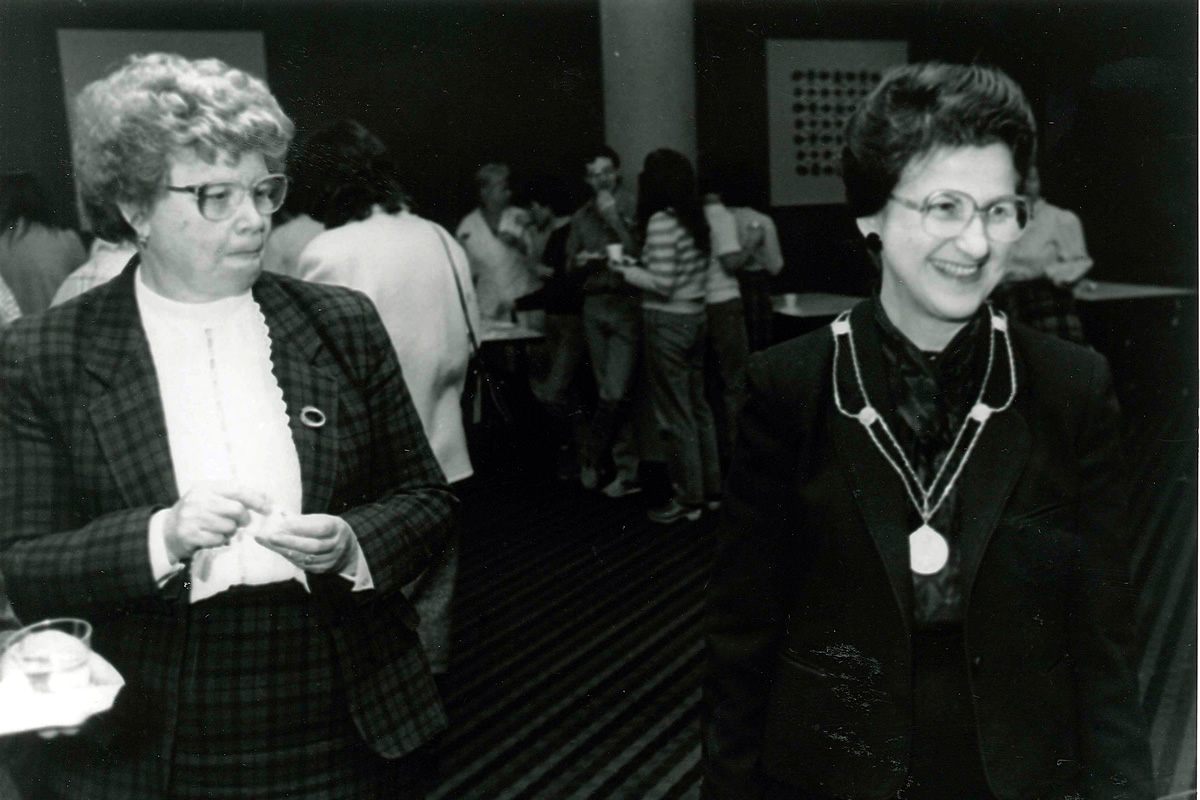
Trailblazers
-
Originally published in Forward, Spring/Summer 2015
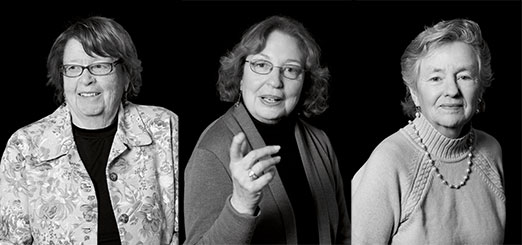
The Pioneers (Left to right: Jenny Glusker, Ann Skalka, & Mary Daly). Photos by: Jim Graham In the 1960s, says clinical geneticist Mary Daly, going to medical school seemed out of reach. “The thinking was that women couldn’t have both families and careers in research or medicine.” Fox Chase was an exception in its support for female scientists. Even in 1946, the Institute for Cancer Research, as Fox Chase’s scientific enterprise was then called, had women in four of the 10 laboratory head positions. Today women comprise more than 40 percent of the research faculty. Forward talked with Daly and two other Fox Chase women, chemist Jenny Glusker and virologist Ann Skalka—all considered pioneers in their fields.
How did you become interested in science?
Mary Daly: As a child, I spent a lot of time by myself drawing, mainly animals, which got me interested in the physical properties of living things. In high school, I had a fabulous young biology teacher, and by the end of the year knew I wanted to pursue biology. I was fascinated with how living things worked.
Jenny Glusker: Both my parents were medical doctors, and I had a general love of wildlife. Then in high school I had an excellent chemistry teacher. I viewed medicine as a service to people and science as trying to find out what really happens. They’re both challenging, but I liked how in chemistry you could figure out what was happening and why.
Ann Skalka: In college I majored in art and biology. I spent two summers in a lab studying plants to screen for drug toxicities and was taken under the wing of a wonderful senior technician. Then I took a course in biological chemistry and learned how to prepare DNA. I thought, “Wow, this is marvelous stuff. I want to learn more.”What challenges did you face when starting your career?
Glusker: I had some excellent scientific mentors, but my greatest challenge was running a lab while raising three children in the days before daycare.
Skalka: Initially I had to choose research or teaching because I felt I couldn’t do both and be a wife and mother. When I started interviewing, I found some places weren’t interested if a woman was already on staff. I was perplexed and discouraged, but finally found a welcoming environment at the Roche Institute of Molecular Biology.How did Fox Chase contribute to your career?
Daly: Fox Chase has a strong tradition of population science—cancer prevention and control. I fit into an established niche with a lot of professional support. Fox Chase was small enough that you could meet people in other departments easily. I think that’s still true today.
Glusker: Fox Chase let me decide which scientific problems I wanted to research. It provided an interesting, supportive, and highly regarded community.
Skalka: As I was beginning my career, I needed to focus on research. When I came to Fox Chase in 1987, my children were grown and I was already running a laboratory and chairing a department. Fox Chase gave me that opportunity to take on a larger leadership role; I served as director of basic science for 22 years.What advice do you have for young people, especially women, interested in science?
Daly: Even though women have come very far in professional life there are still a lot of barriers, particularly for younger women. We have to constantly be aware of helping women promote their careers.
Glusker: Find a subject that really interests you, and immerse yourself in learning and trying to solve questions that still need to be answered.
Skalka: If scientific research is your vocation and you’re excited about it, pursue that career. In addition to laboratory research, there are other ways a scientific education and training can be useful, such as industry or law. Keep your eyes open: you will find your way.How has technology changed healthcare and research since you began your career?
Daly: Technologies today let us learn things we never could. Genetic sequencing is new. I could go on about the technology that enables us to learn about and prevent cancer. We have a lot of opportunities to make progress.
Skalka: We still haven’t found a way to make the public better appreciate and support scientific scholarship. The good news is technology is improving exponentially. The kind of questions you can ask and the chances for scientific collaboration are mind boggling.The Pioneers
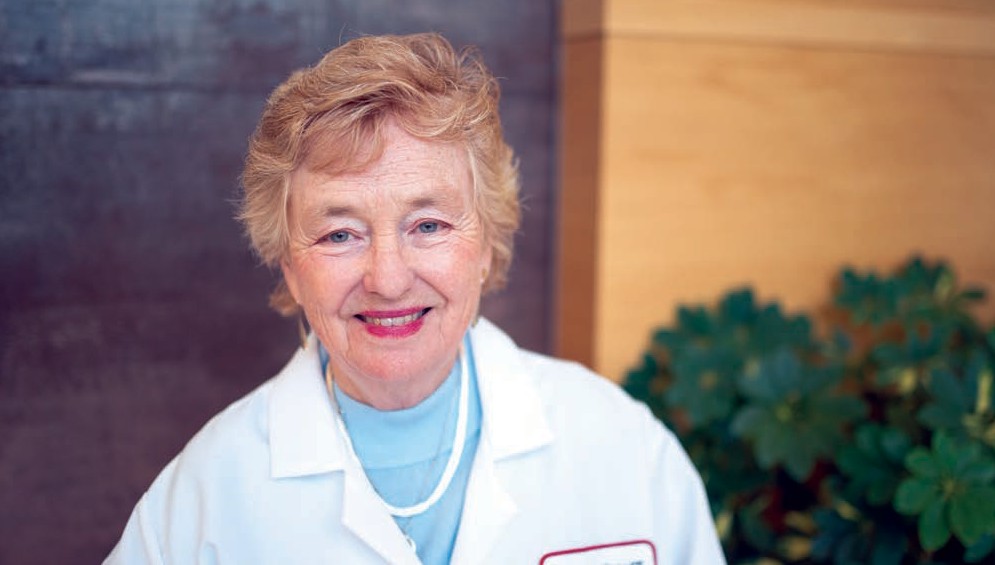
Mary Daly
Position: Chair of clinical genetics, Timothy R. Talbot Jr. Chair in Cancer Research
Notable Achievements: Established Fox Chase’s first family risk-assessment program in 1991, one of the first of its kind in the country.
Fun Facts: Spent six years in the Air Force Medical Corps before coming to Fox Chase. Also makes art through lithography, a type of printmaking.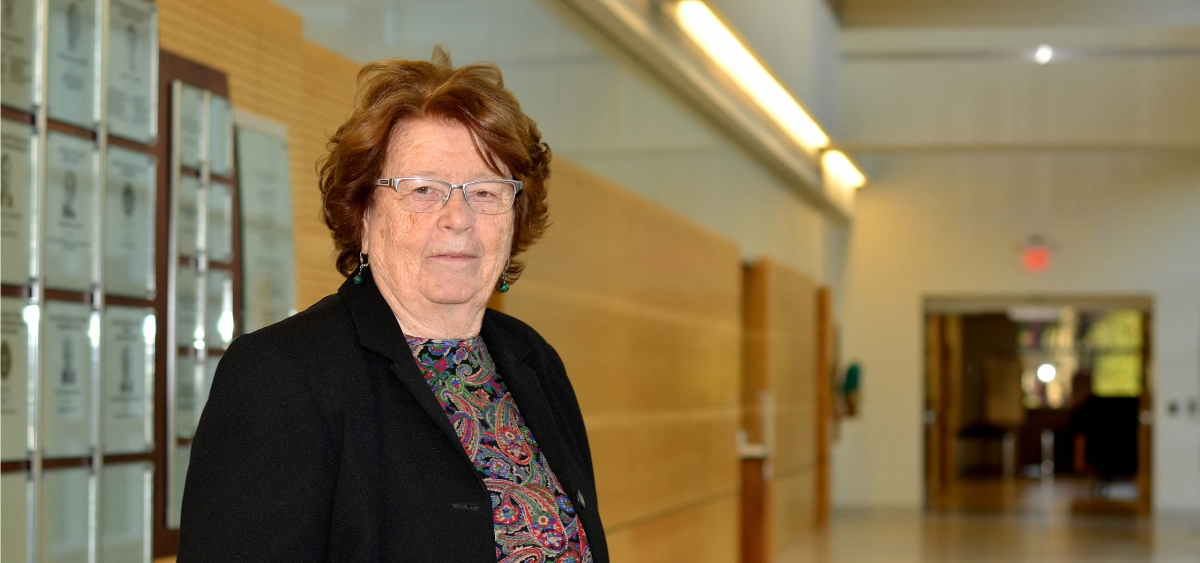
Jenny Glusker
Position: Professor emerita
Notable Achievements: Contributed to the discovery of the chemical formula for Vitamin B12, an important milestone in chemistry. Also studied three-dimensional aspects of cancer and enzyme mechanisms.
Fun Facts: Keynote speaker on advances in crystallography at the opening ceremony for the UNESCO 2014 International Year of Crystallography in Paris, France.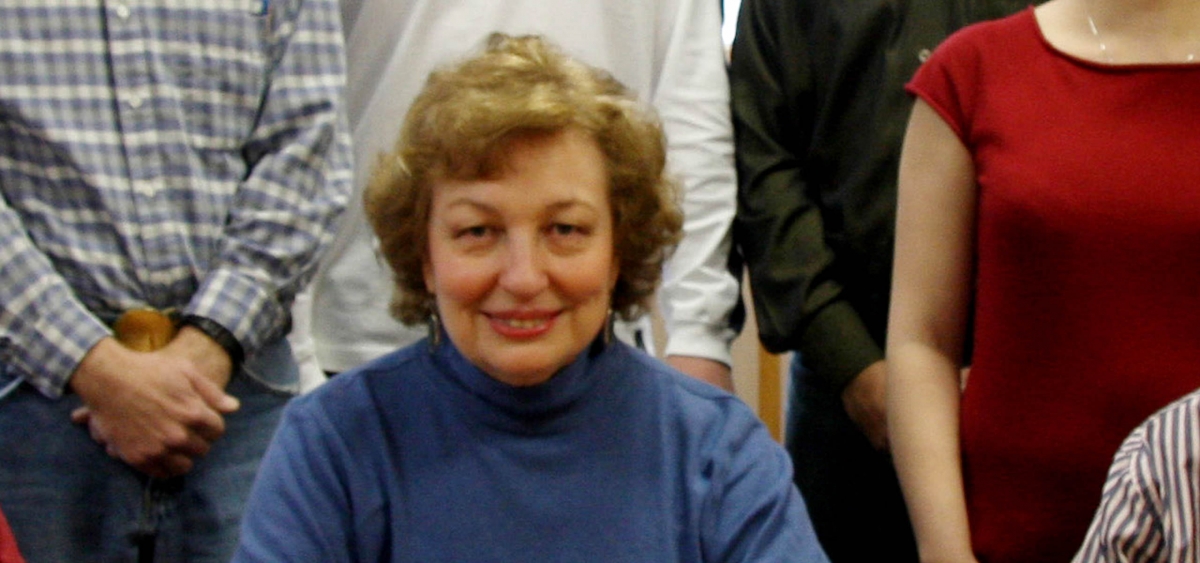
Ann Skalka
Position: William Wikoff Smith Chair in Cancer Research, basic research director emerita and senior advisor to the president
Notable Achievements: Contributed to our understanding of the biochemical mechanism by which retroviruses (including the AIDS virus) replicate and insert their genetic material into the host genome.
Fun Facts: Co-author of the widely acclaimed textbook Principles of Virology and a leader on state, national, and international advisory groups concerned with the broader societal implications of scientific research.Read more about Fox Chase Cancer Center Women in Science

